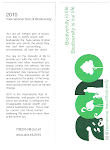Mental Health & Diversity Course:
The course outline below is in rudimentary form. The actual course is 4 pages with a reading list for each unit.
It is a university level course, but parts of it can be used in workshop format at high school or NGO or volunteer organization level.
The web site list on this website only includes web sites that have all religions in one place. They are very comprehensive, though choices have been made by the websites themselves regarding what to include and not include. Many religious communities have excellent web sites, with audio and video content. Some of the non-reference websites make periodic changes, and a couple have been 'sold' and content changed. I have left one or two in, just in case the old one reappears with a new link. If a website does not open when you click on it, eliminate the 'http://' and start only with the 'www.' . This seems to open them.
There is a small list of mental health web sites. The web has thousands of mental health web sites. My interest is to focus on quality of life issues and efficiencies in the life-long learning process and the global workplace. There are issues of the interconnectedness of mental health and physical health. I am not going there, directly, but attention is being drawn here that it is also critical to optimal health and living, and some leads will be provided in the web site list. It is not part of the course. I took courses with a yoga instructor/master, and he is a friend of mine. He has for decades provided bibliographic lists of medical research showing the direct benefits of yoga and meditation to physical health and over-all well-being over time.
I have specialized in this interdisciplinary area for very many years. Practically nobody in the literatures in social science and medical science brings together such a wide field, theoretically & practically, for understanding the issues & problem-solving. It is 'meta-theory', and open to further research as we connect the dots & make a diference in quality of life, conflict resolution, and the environment.









No comments:
Post a Comment